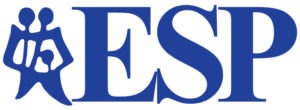Leadership
Director
Melissa Klein, MD, MEd
Curriculum Chair
Priya Garg, MD
Curriculum Associate Chair
Sarah Hilgenberg, MD
Research Chair
Ross Myers, MD
Research Associate Chair
Lisa Herrmann, MD, MEd
Cohort Leaders
C10
Jessica Goldstein, MD
Julia Aquino, MD
C9
Donna D’Alessandro, MD
Leora Mogilner, MD
Advisor Leader
Priti Bhansali, MD
Online Learning Managers
Leora Mogilner, MD
Robert Riss, MD
Rita Nathawad, MD
Alumni & Friends
Nick DeBlasio, MD, MEd
Elena Huang, MD
Portal Managers
Virginia Niebuhr, PhD
Elizabeth Hanson, MD
Robert Riss, MD
The ESP is a three-year, national, faculty development program for academic pediatric educators who wish to build their skills in educational scholarship and leadership. The program aims to teach scholars to develop, implement, evaluate and disseminate educational interventions and other types of educational scholarship.
ESP’s curriculum includes in person workshops annually and online courses facilitated by faculty throughout the year. Each scholar is assigned to a small group of peers and two national faculty advisers who meet monthly through the three years. Scholars participate in person annually at the Pediatric Academic Society meeting where additional workshops on educational topics concepts such as conceptual frameworks, mentoring and survey design are taught by national experts in medical education. Scholars work on a longitudinal educational research project throughout the three years and share their work with their peers and faculty in small groups at PAS.
What is Educational Scholarship?
Educational scholarship is the dissemination/sharing of sound educational research or dissemination about a systematically developed and evaluated curriculum, educational intervention or educational innovation.
The Program includes:
- Assignment of a National Advisor, selected based on each scholar’s interests
- Asynchronous, online learning activities
- An annual, pre-PAS ESP Day
- Conducting a mentored educational project
- Development of an Educator Portfolio
- Certificate of Excellence in Educational Scholarship, upon graduation
ESP Program Objectives:
- Develop a scholarly approach to planning, implementing and evaluating educational activities and programs.
- Develop an equitable, inclusive and antiracist approach to planning, implementing and evaluating educational activities and programs.
- Develop skills and strategies to use emerging technologies that will enhance one’s effectiveness as an educator and a scholar.
- Participate in peer review and provide constructive feedback.
- Systematically plan and implement scholarly projects informed by conceptual frameworks.
- Conduct educational research and evaluation using high quality quantitative and/or qualitative methods.
- Apply skills to disseminate one’s scholarly work to professional audiences.
- Document one’s educational activities in a structured educator portfolio to guide career planning and adapt the documentation to one’s institutional promotional guidelines.
- Perform criterion-based peer reviews of abstracts and manuscripts.
- Develop strategies to build and sustain productive mentor-mentee relationships for mutual professional advancement.
- Reflect upon one’s practice as an educator and scholar as a means of self-improvement and life-long learning.
- Participate in professional networks to facilitate career growth and satisfaction.
- Engage with a national community of educators to advance educational scholarship.
Curriculum Outline
Year One
ESP Launch Course (Jan-May)
PAS Day 1 In-Person Programming
Educator Portfolio - Part One (Jun-Jul)
Literature Searching (Sept-Dec)
Quantitative Methods (Jan-Mar)
Year Two
PAS Day 2 In-Person Programming
Technology for Education (Jun-Jul)
Qualitative Methods (Sept-Nov)
Educator Portfolio Part 2 (Jan-Mar)
Year Three
PAS Day 3 In-Person Programming
Author Development (Sept-Nov)
Reviewing Manuscripts (Jan-Mar)
Program Requirements
Make sure to speak with your Division Director and/or Chair about ESP requirements early in the application process.
Scholars are expected to:
- Commit 10% of their time to ESP in order to complete the full curriculum and a project
- Prepare for and attend quarterly webinars
- Complete required assignments
- Meet regularly with local/national mentors/advisors
- Attend the annual PAS Meeting
- Three instructional sessions (9 hrs each over three years)
- This didactic component of the program is offered each year on Friday before the PAS meeting begins
- The courses include both presentations of concepts and practical, hands-on activities with many opportunities for collegial interactions
- Conduct a mentored educational project and provide evidence of a successfully peer-reviewed national presentation or publication related to the project
- Self-directed, experiential component of the program
- Project in educational research, innovation, or evaluation
- Conducted at the scholar’s home institution.
- Develop an Educator Portfolio
- In accordance with Educator Portfolio Instructions
- Review and feedback on educator portfolios will be provided by ESP faculty advisors
In order to receive a Certificate of Excellence in Educational Scholarship, projects must culminate in a peer-reviewed publication or peer-reviewed presentation at a national meeting (e.g. AAMC, COMSEP, APPD, or an equivalent organization).
Apply
ESP will recruit for Cohort 11 in Summer 2024
Applicants must submit the following materials via the online application portal:
- Personal information (e.g., name, email address)
- Curriculum Vitae (CV)
- Statement of Agreement to Participate
- Project description (500 words)
- Personal Statement (250 words)
- Required Statement and Letter of Support from Supervisor
- Required Statement, Letter of Support, and biosketch from local mentor
- Application fee
Applicants are responsible for collecting and electronically submitting all application materials.
Applications to ESP must include a project proposal. Development of creative content and formats for educational projects is encouraged. ESP leadership is available for discussion of project ideas prior to application submission. Following acceptance to and enrollment in ESP, projects may be modified, based on discussion with and approval from ESP leadership.
Applicants are responsible for finding their own local mentors. ESP leadership is available to provide guidance in identifying a mentor if given notice at least two months prior to the application deadline. ESP leadership will identify a national advisor for scholars who are accepted and enroll in the program.
Eligibility
This program targets present or future faculty in academic pediatrics who wish to build their skills in educational scholarship.
Applicants must be members of the Academic Pediatric Association.
Applications are welcome from those who are:
- Faculty in academic pediatrics
- Others who are looking to become faculty in academic pediatrics
Pediatric generalists, hospitalists, and faculty from all pediatric subspecialties are encouraged to apply.
Tuition & Fees
- There is a $125 application fee
- Tuition is $5,600, due within 90 days of acceptance
Please contact the APA office if the application fee and/or tuition limits your ability to apply.
Current Scholars
Alumni
Scholar Program Portal for Cohorts
Program Outcomes
View a list of the scholarship around ESP and read the View from the APA Scholars Programs section in Academic Pediatrics here.
FAQs
What are the criteria for acceptance? The selection of participants is based on a review of the application materials and a determination of the applicant’s ability to successfully complete all of the components of the program. We are looking for scholars with outstanding credentials and recommendations, a dedicated mentor, and documentation of institutional support, as well as a sound and innovative project proposal that is likely to have a positive impact on education. Project proposals are evaluated on the following criteria:
-
- Relevance to ESP Goals (important educational topic, scholarly approach)
- Innovation in topic or approach
- Feasibility of accomplishing project objectives (e.g., time, resources, technical capability)
- Quality of methods (e.g., sound design, reasonable timeline, methods appropriate to purpose, methods described with nuanced understanding, well constructed tools)
- Quality of project evaluation (e.g., both process and outcome measures, appropriate respondents, sound tools)
- Potential for dissemination (e.g., clarity of written proposal, experience with dissemination methods, sound plan, past peer review successes)
Who selects the scholars and how many will be selected? The ESP Executive Committee directs selection of scholars. A cohort of approximately 30 scholars is chosen every 3 years.
Will the program accept fellows as well as faculty? No
Is this program designed only for new faculty members, or can mid-career faculty also apply? We include a mix of new faculty and those with more experience who want to develop new skills to enhance their academic repertoire. Individuals in education leadership roles are appropriate.
Can pediatric subspecialists apply? Yes, sub-specialists are welcome and encouraged to participate. The focus of the program is education, not any particular specialty. Past scholars have represented a wide range of disciplines within pediatrics.
Is an applicant required to possess an MD to apply? No, the program will accept qualified applicants who have a pediatric faculty appointment (including MDs, DOs, PhDs), or a faculty appointment related to pediatrics in another department (e.g., Emergency Medicine). They also may be a community faculty member with a genuine commitment to academics who teaches pediatrics to students or residents.
What exactly does the 10% time commitment mean? Does it mean a salary commitment? Negotiation of the supervisor's agreement to protect 10% of the scholar's time is the responsibility of the scholar. Our expectation is that scholars will be doing projects that are a direct and valuable contribution to their department or institution and that fit into their current job commitments, or can be negotiated to become a part of the Scholar's job commitments. Program participation should also benefit the department by making the Scholar more effective as an educator, leading to promotion.
What is meant by a project in educational scholarship? Projects can be focused on the development, implementation, evaluation and/or dissemination of educational interventions or evaluation methods by a creative, planned and rigorous process that is consistent with best practices in the field and reviewed by peers for excellence. Scholarly projects are described, with examples, at ESP Project.
How should I choose a mentor? Your mentor does not need to be a pediatrician or a member of your department, but should have expertise in a key area related to your project. An educator may be a better choice than a clinical content expert. A good mentor is approachable and available, and personally committed to the mentee's success. Mentors should also be experienced and widely respected, so they can help their mentees to network with senior colleagues and gain visibility in their field. Ideally, a Scholar's mentor is local, to facilitate frequent meetings, but that is not a requirement. Scholars must make their own arrangements with mentors, but the ESP faculty can help identify a potential mentor upon request. The mentor's letter and qualifications will be reviewed critically as part of the application.
What is an ESP national advisor advisor? In addition to the home mentor, all scholars will be assigned a national advisor. This advisor will track your project’s progress and help troubleshoot, if needed. The national advisor’s main role is to offer career guidance, so he/she/they will also review your CV and educator portfolio.
What will I get out of the program? Being in the ESP will give you: a Certificate of Excellence in Educational Scholarship with a letter of acknowledgement to your supervisor, help with implementation of a substantial educational project, a peer-reviewed publication or presentation to add to your curriculum vitae, a systematic learning experience to enhance your skills as an educational scholar, a carefully crafted educational portfolio useful for future promotion reviews, expert career guidance, and valuable networking with a national group of like-minded academic peers.
Does the ESP provide financial or travel support to Scholars? No, we have no funds for this purpose. Your supervisor's support for the tuition fee, time protection, project costs, and travel to the Pediatric Academic Societies meeting will be required for you to participate. Some Scholars may have access to grant support, e.g. through faculty development grants, to supplement local resources.
Why is there an application fee and tuition cost? The ESP is expensive to operate, with 50 faculty engaged in managing and evaluating the program, planning the curriculum, teaching at PAS, directing intersession activities, and advising individual scholars. The fee makes it possible to sustain a high quality program.
How can I learn more about ESP? Follow us on twitter at #BeAScholarESP and use the below form to submit additional questions.


